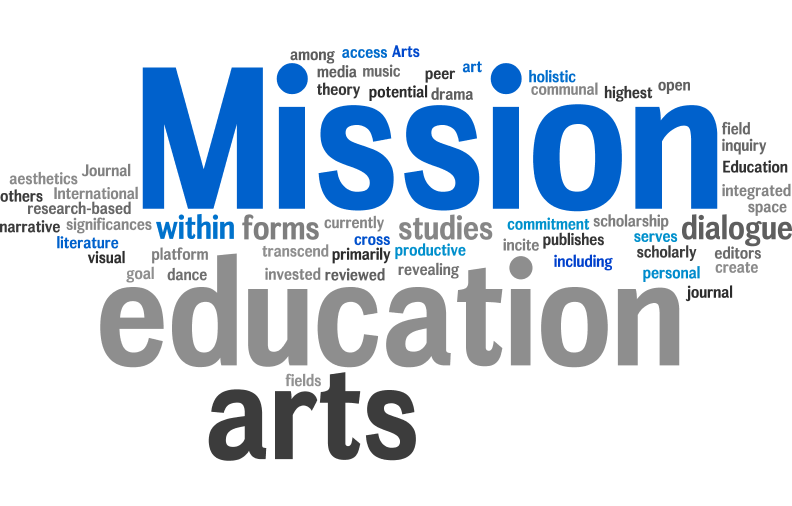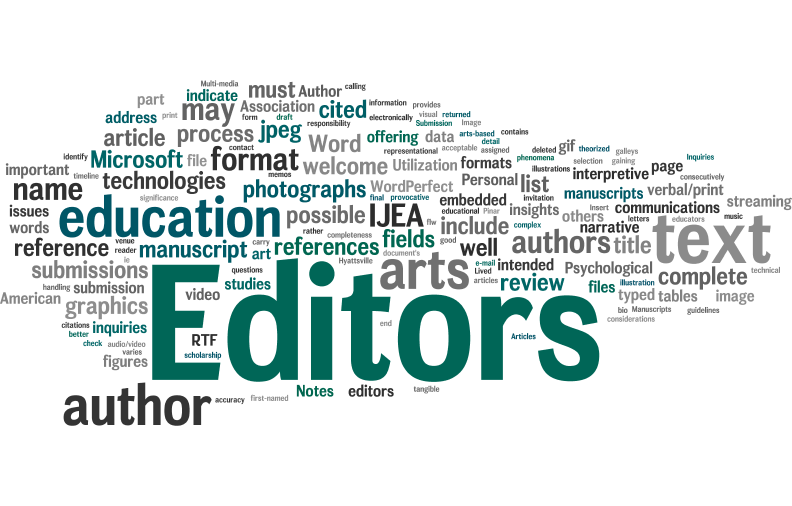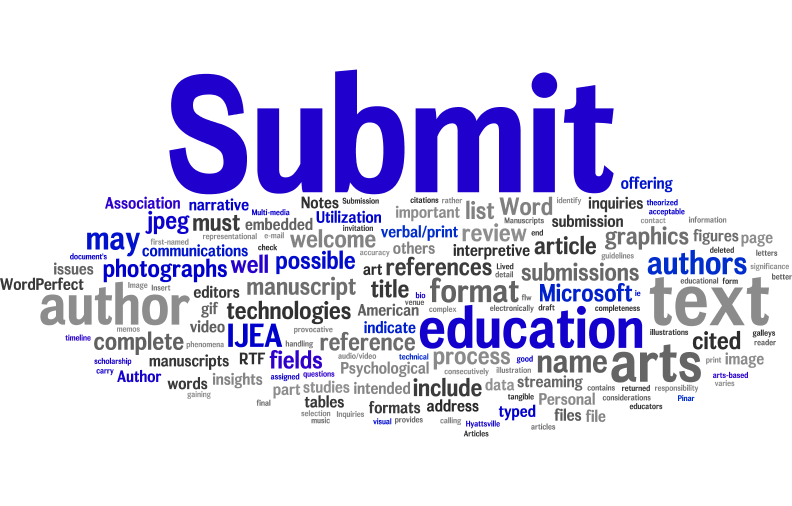| Volume 24 Special Issue 2 |
Positive Psychology and Music Education
Liesl van der Merwe, Guest Editor
North-West University, South Africa
Ewie Erasmus, Guest Editor
North-West University, South Africa

Articles
Volume 24 Special Issue 2.0 Editorial
Editorial: A Framework for Positive Music Education
by Liesl van der Merwe & Ewie Erasmus
Communities worldwide are facing a range of adverse circumstances associated with the COVID-19 pandemic, climate change, inequality, oppression, violence, discrimination and global unrest. Consequently, there is an increasing need for people to develop their capacity to deal with challenges, be resilient and persevere if we are to flourish. Positive psychology and the therapeutic qualities of music education hold the potential to provide unique opportunities to promote solidarity by recognizing differences and strengths within various educational contexts, thereby strengthening communities. Positive psychology and music education are both well-established fields. However, the intersection and dialogue between positive psychology and music education are underdeveloped (Olander & Saarikallio, 2022). In this special edition, the authors explore the interconnectedness between these two disciplines. In this editorial, we propose a framework, generated from the articles for this special edition, for advancing positive music education (PME).
Read More | Full Text PDFVolume 24 Special Issue 2.1
Reclaiming “Happiness”: Music Education, Meaningfulness, and Collective Flourishing
by Marissa Silverman
The concept of “happiness” has long been debated, particularly as interpreted through utilitarianism (e.g., Ahmed, 2010a, 2010b). This paper, however, takes as its point of departure the virtue ethicists’ (e.g., Aristotle, ca. 350 B.C.E./1999; Foot, 2001) understanding of eudaimonia and interprets “happiness” through the lens of decolonial feminist community psychology. In doing so, I suggest that music education—at all levels—can reclaim “happiness” and assist learners/participants pursue fulfillment and flourishing through musical engagement between self and other and in this way live a “good life,” a life of meaningfulness and significance for themselves and their communities (Elliott & Silverman, 2015; Silverman, 2012, 2020a; Silverman & Elliott, 2016; Smith & Silverman, 2020). In pursuing “collective happiness” within the framework of decolonial feminist community psychology, the music education profession would shift its focus from subjective, individualistic accounts of “happiness” and well-being to relational, social, and contextual versions of flourishing-as-happiness. By drawing on feminist theory and critical community psychology, this account reframes “happiness” as relational meaningfulness. A case study will illustrate the nature of musical meaningfulness, collective “happiness,” and the public good.
Read More | Full Text PDFVolume 24 Special Issue 2.2
Helping Students Overcome Musical Inhibition: Perspectives of Instrumental Teachers in Malaysia and Singapore
by Hui Ling Khoo, Kathryn Ang & Albi Odendaal
Although musical inhibition is well known in music education, it has not been studied extensively. This may result in misdiagnosis of student experience. In this paper, we examine how teachers have described the ways they help students overcome musical inhibition. Using a basic qualitative research design, we conducted semi-structured interviews with twelve studio piano teachers from Singapore and Malaysia. The themes that emerged from the data showed that in order to help students overcome musical inhibition, teachers foster personal relationships within the students’ learning environment, increase student ownership of their learning, and develop students’ confidence in their musical abilities. This shows that teachers intuitively grasped the basic needs for motivation in musically inhibited students and attempted to address this through their previous teaching experiences. The results suggest that understanding the relationship between motivation and inhibition will support music teachers in helping students who display symptoms of musical inhibition.
Read More | Full Text PDFVolume 24 Special Issue 2.3
The Meaning that Five Music Teachers Ascribe to Their Lived Experiences of Music and Imagery Sessions During the COVID-19 Pandemic: An Interpretative Phenomenological Analysis
by Petra Jerling
The COVID-19 pandemic had, and still has, an influence on everybody’s well-being, including that of music teachers. The search for meaning in life and purpose for music teachers became even more compelling throughout this trying time. This interpretative phenomenological analysis (IPA) explores the multiple meanings that five self-employed music teachers who were diagnosed with the coronavirus ascribed to their lived experiences of Music and Imagery (MI) sessions. MI is a receptive music therapy method, which involves listening to music for therapeutic benefits. Five music teachers, who fitted the inclusion criteria, attended four individual MI sessions. Each teacher participated in a semi-structured interview after the sessions. The collected data were transcribed, analyzed, and coded. Themes that emerged included emotional experiences, spiritual experiences, personal growth and empowerment. Findings indicate that meaning in life during a pandemic can be re-established through the application of MI sessions.
Read More | Full Text PDFVolume 24 Special Issue 2.4
Helping Music Education Majors Through Positive Psychology: A Review of the Literature
by H. Christian Bernhard II
Researchers and educators have documented stress and other mental health challenges among music education majors for decades. Issues related to academic workload in competitive music environments, striving to develop a teaching identity, and adjustments to college life often combine to create tension and unease. These problems were exacerbated during the COVID-19 pandemic, and many music education majors still struggle to find a sense of normalcy and routine. The purpose of this article is to offer a narrative review of the literature to suggest ways in which the PERMA model of positive psychology (positive emotion, engagement, positive relationships, meaning, and accomplishment) might help to mitigate distress among music education majors and offer pathways to enjoyment of college and flourishing in life. Specific research areas include positive emotion, engagement, positive relationships, meaning, accomplishment, and physical health.
Read More | Full Text PDFVolume 24 Special Issue 2.5
Exploring How an Awareness and Understanding of One’s Ennea Type Can Promote Well-Being Among Singer-Teachers
by Conroy Cupido & Antoinette Olivier
In higher education singer-teachers face a myriad of possible conflicts and miscommunication that threaten their well-being. Furthermore, work stress and unhealthy work relationships may detract from what brings meaning and purpose to the lives of singer-teachers. This research highlights how a proactive approach to enhancing well-being in the lives of singer-teachers is possible. This qualitative study employed a duoethonographic approach whereby the authors explored how an awareness and understanding of one’s Ennea type can promote well-being among singer-teachers. The findings demonstrate that through self-discovery, distinct behavioral adaptations were made among the researcher-participants (singer-teachers) when they were aware of their unique motives, weaknesses, strengths, and preferred ways of receiving feedback. When they understood why and how they responded to situations in a manner typical of their Ennea type, they were able to mitigate conflict that may have arisen by developing empathy towards each other. These actions led to increases in positive emotion, positive relationships, and overall well-being.
Read More | Full Text PDFVolume 24 Special Issue 2.6
Music and Movement for Flourishing: Using the PERMA Model of Well-Being to Understand Participants’ Experiences of Dalcroze Eurhythmics
by John Habron-James
Dalcroze Eurhythmics is a way of teaching and learning music through exploring music-movement relationships. Recent qualitative research contains rich insights into participants’ experiences and sometimes discusses them in relation to well-being. However, it remains to be seen to what extent the discipline of positive psychology, in particular Martin Seligman’s PERMA model of well-being, can help us to understand these experiences. This integrative literature review examines the findings of 51 qualitative studies of participants’ experiences of Dalcroze, using the PERMA model as an analytical framework. As a result, it reconceptualises experiences of Dalcroze as experiences of well-being, and argues that engaging in Dalcroze may contribute to the flourishing of participants.
Read More | Full Text PDFVolume 24 Special Issue 2.7
Singing with Mr. Tortoise: South African Children’s Oral Narratives and Value Education
by Jaco Kruger, Hannelie Louw, and Julialet Rens
This essay explores links between positively psychology, contemporary political history, narratology and education. Its primary objective is to examine the system of values encoded in a genre of South African children’s oral narrative, with a view towards expanding comparable data available to positive psychology and proposing a role for this genre in formal value education. Concern about contemporary anomie not only involves positive psychology, but also public interest in ‘indigenous’ knowledge, particularly ancestral values that ground social checks and balances, and engender harmonious relations. The children’s narrative genre is shown to involve the tacit communal production of ancestral virtues, character strengths and norms. The essay motivates the potential incorporation of the genre into foundational phase education, while its pedagogy and capacity for subject integration are briefly considered.
Read More | Full Text PDFVolume 24 Special Issue 2.8
In Search of Perfection – The Need for Self-Compassion in Music Performance Education: A Concept Analysis
by André Oosthuizen
In the search for perfection, musicians can often be extremely harsh on themselves. When teaching, there is a genuine possibility that this self-treatment can be transferred to students. By using self-compassion as a personal resource, musicians can foster a healthier relationship with themselves without relinquishing their search for perfection. Self-compassion entails self-kindness, common humanity, and mindfulness. This article reflects on the concept of self-compassion within the performing arts world by describing model, contrary, related, and borderline cases. Concept analysis was employed to illustrate how performing musicians could draw on the concept of self-compassion. Preliminary findings show that self-compassion could be a valuable tool for performing musicians to assist them in alleviating performance anxiety and general feelings of self-doubt. I argue that by applying the concept of self-compassion in their practicing routine, performing musicians can improve their general psychological health – giving them a different approach to performing. Treating oneself with more self-compassion can also lead to more compassionate teaching practices. Self-compassion can greatly help performers lessen the pressure that they place on themselves to achieve unattainable perfection.
Read More | Full Text PDFVolume 24 Special Issue 2.9
Relating to the ‘Musical Homes’ of my Diverse Music Theory Students: An Autoethnography
by Catrien Wentink
As a Western classically trained music theory lecturer teaching students from different African cultures and backgrounds, I often struggle to relate to my students on a musical level as I experience that our ‘musical homes,’ as described by Odendaal (2021), are different. In this article I adopted an autoethnographic research approach by drawing on my journey and story as a music theory lecturer. The research question guiding this research was: How can reflection on my music theory teaching journey help me to relate better to the musical homes of my diverse students? The findings indicated that creative work and cooperative learning were useful in relating to the musical homes of my students and also helped the students to satisfy the three psychological needs for intrinsic motivation – competence, autonomy and relatedness – as addressed in self-determination theory (SDT) and lead the way to academic success.
Read More | Full Text PDF



